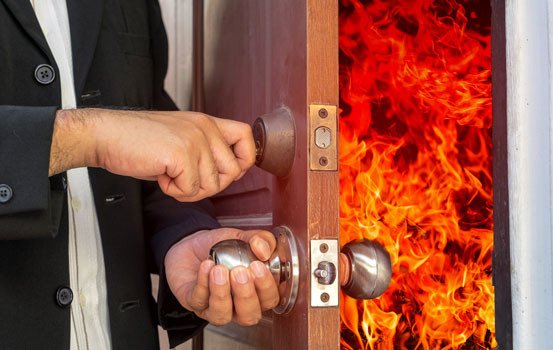Water Heater Replacement: A Comprehensive Guide to Seamless Upgrades
Water heaters are essential appliances in homes and businesses, providing a steady supply of hot water for various activities. Over time, however, water heaters may deteriorate, become less efficient, or experience irreparable issues, necessitating replacement. This comprehensive guide explores the importance of water heater replacement, signs that it’s time for an upgrade, considerations for selecting a new water heater, the replacement process, and the benefits of professional installation.
The Importance of Water Heater Replacement:
Water heater replacement is a crucial step in maintaining an efficient and reliable hot water supply. Aging or malfunctioning water heaters not only lead to inconvenience but can also result in increased energy consumption, higher utility bills, and potential safety hazards.
Signs Indicating the Need for Replacement:
- Age of the Water Heater:
- Indication: Typically, water heaters have a lifespan of 8-12 years.
- Consideration: If the water heater is nearing the end of its expected lifespan, replacement should be considered.
- Inadequate Hot Water Supply:
- Indication: Insufficient hot water or frequent fluctuations in temperature.
- Consideration: An aging water heater may struggle to meet the demands of daily hot water usage.
- Rusty or Discolored Water:
- Indication: Rusty or discolored water coming from the hot water taps.
- Consideration: Corrosion inside the tank can affect water quality, signaling the need for replacement.
- Visible Leaks or Water Around the Heater:
- Indication: Presence of water around the base of the water heater.
- Consideration: Leaks may indicate internal damage, and replacement is often the best solution.
- Strange Noises:
- Indication: Popping, banging, or rumbling sounds during operation.
- Consideration: Sediment buildup or other internal issues may compromise the water heater’s efficiency.
Considerations for Selecting a New Water Heater:
- Type of Water Heater:
- Options: Tankless (on-demand), tank-type (storage), heat pump, or solar.
- Consideration: Choose based on energy efficiency, space availability, and hot water demand.
- Fuel Source:
- Options: Electric, gas, or hybrid.
- Consideration: Consider energy costs, availability of fuel sources, and environmental impact.
- Capacity:
- Options: Different sizes to meet varying hot water demands.
- Consideration: Choose a capacity that aligns with the household or business’s hot water needs.
- Energy Efficiency:
- Options: Energy Star-rated models for improved efficiency.
- Consideration: Prioritize energy-efficient models to reduce long-term operating costs.
- Installation Space:
- Options: Different sizes and installation requirements.
- Consideration: Ensure the selected water heater fits the available space and complies with installation guidelines.
The Water Heater Replacement Process:
- Assessment:
- Objective: Evaluate the existing water heater and hot water demands.
- Execution: Professional assessment helps determine the most suitable replacement options.
- Selection of a New Water Heater:
- Objective: Choose a water heater based on assessment and considerations.
- Execution: Select a model that aligns with capacity, fuel source, and energy efficiency requirements.
- Removal of the Old Water Heater:
- Objective: Safely disconnect and remove the old water heater.
- Execution: Drain the tank, disconnect plumbing and electrical connections, and remove the old unit.
- Installation of the New Water Heater:
- Objective: Precise installation of the new water heater.
- Execution: Connect plumbing and electrical components, ensuring proper fittings and adherence to safety standards.
- Testing and Calibration:
- Objective: Verify the proper functioning of the new water heater.
- Execution: Conduct tests to ensure correct temperature settings, proper water flow, and absence of leaks.
Benefits of Professional Water Heater Replacement:
- Expert Advice:
- Role: Professionals provide guidance on the most suitable replacement options.
- Impact: Ensures the chosen water heater meets specific needs and requirements.
- Efficient Installation:
- Role: Professionals have the expertise to install water heaters efficiently.
- Impact: Minimizes downtime and ensures a seamless transition to the new unit.
- Compliance with Codes:
- Role: Professionals adhere to local building codes and safety standards.
- Impact: Guarantees a safe and compliant installation.
- Warranty Protection:
- Role: Professionals often provide warranty-backed installations.
- Impact: Offers protection and support in case of unexpected issues with the new water heater.
- Long-Term Performance:
- Role: Proper installation enhances the long-term performance of the water heater.
- Impact: Reduces the likelihood of premature issues and ensures optimal efficiency.
Conclusion:
Water heater replacement is a crucial step in maintaining a reliable hot water supply and optimizing energy efficiency. Recognizing signs that indicate the need for replacement, considering key factors when selecting a new water heater, and entrusting the replacement process to professionals are essential steps in the seamless upgrade of this essential appliance. By prioritizing water heater replacement, homeowners and businesses can enjoy the benefits of improved efficiency, reduced energy costs, and a reliable hot water supply for years to come.






